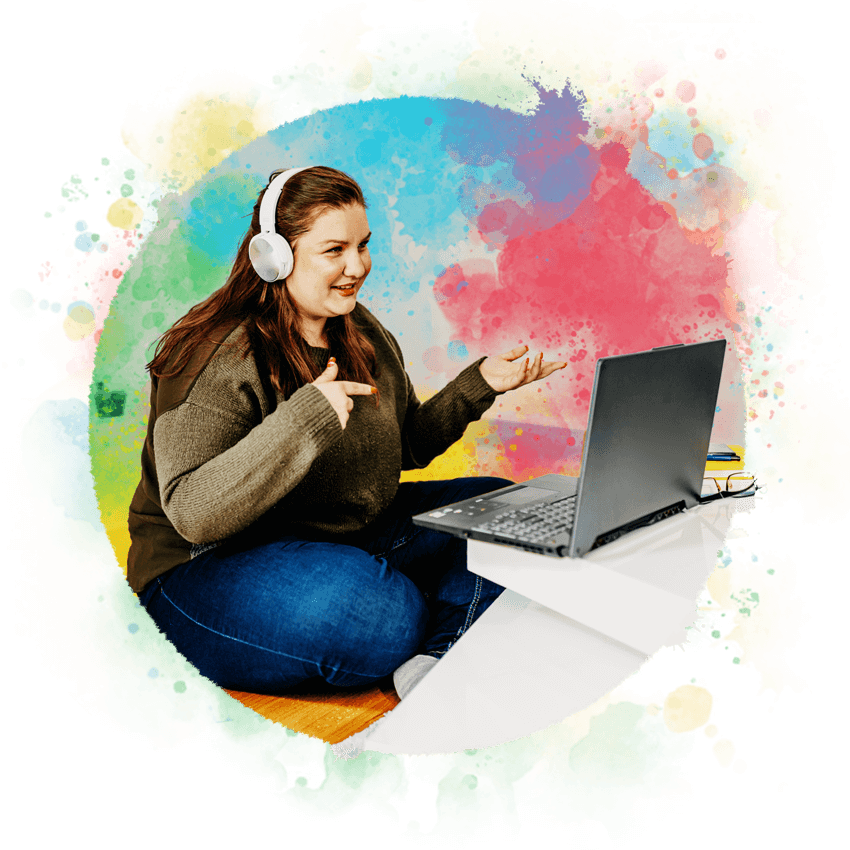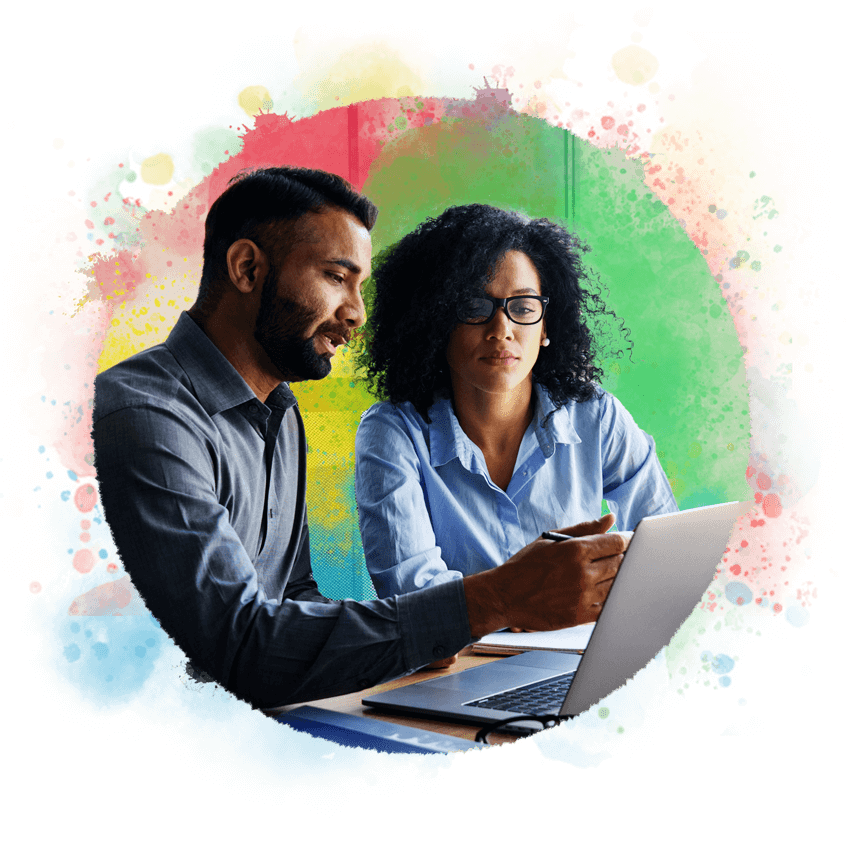
Facilitating DiSC
When introducing Everything DiSC® to your organization, one of your first questions might be: Can someone in our organization do the facilitation? Usually, the answer is yes. There may be other reasons why you’d want to hire a consultant or outside facilitator. Still, it is possible to deliver a well-structured and insightful session on DiSC® using the many tools and tips offered here and elsewhere online.
Skills needed to facilitate DiSC
Not everyone will enjoy delivering an Everything DiSC session. A few basic interests and skills will make a facilitator more successful:
- an interest in people, personality, and relationships in the workplace
- confidence in speaking and presenting
- familiarity with any communication or presentation tools to be used
- flexibility and a sense of humor
- ability to stay organized
- good listening skills
Training resources
We always recommend that anyone new to Everything DiSC, or to the specific profile they will be introducing, purchase and review one of the Everything DiSC Facilitation Kits. These offer videos, slides, activities, and fully scripted modules that can be used right out of the box or customized to better meet the needs of your learners. There is a different kit for each application in the Everything DiSC suite. Each educational module has been tested with both facilitators and learners to ensure quality.
Those facilitators who want to build their knowledge and confidence should consider Everything DiSC certification. It prepares facilitators to deliver engaging DiSC experiences by becoming familiar with the research behind DiSC, reviewing the entire suite of applications, and practicing facilitation strategies. Facilitators learn how and when to use the various DiSC products. For a less rigorous learning experience, facilitators can go through Everything DiSC Essentials, a self-guided online program designed to deepen your understanding of DiSC.
Basic knowledge
New and seasoned facilitators can benefit from reviewing their knowledge of DiSC. These articles and documents are useful preparatory information and can help facilitators answer questions posed by skeptical learners.
About Everything DiSC: Theory and Research (PDF)
Everything DiSC Research Report (PDF)
Facilitation vs. training vs. coaching
Does the delivery of insights via Everything DiSC require the skills of a facilitator, a trainer, or a coach? It can require all three, but for differing purposes.
The function of a trainer is the first to be called on. Trainers dig into the organization’s needs and focus on the necessary content and processes. The trainer determines the learning objectives and is the expert in the room. The first part of any DiSC session is delivering content around the DiSC model and how it relates to organizational issues.
Good sessions then move into the facilitation process, during which participants make their own discoveries and provide additional content. They share their own reactions to and experiences with their personal profile and the DiSC model. Facilitators support the group in achieving the intended results by engaging groups in discussion and activities. Facilitation is a more collaborative effort—more responsive, flexible, and encouraging than training.
Occasionally, after an Everything DiSC session, it will become apparent that someone needs or wants coaching. This is particularly fruitful with the Everything DiSC Agile EQ, Productive Conflict, or Work of Leaders profiles. Coaches can focus on individual needs rather than those of a group or organization. A good coach doesn’t have to be an expert on DiSC, but rather use it as a tool for asking powerful questions.
“You are solving a problem. What is the real problem? You might get—you-know—the big guy at the top of the organization saying, ‘we need leadership training here.’ But it’s really that these guys just don’t know how to work together. So it’s not a Work of Leaders profile, it’s Workplace. You need to figure out your own style to better work with other people on your team. That’s why you do a needs analysis. To solve the issue that really is in front of the problem.”
Co-facilitation
Delivering a program with more than one facilitator can be beneficial for both the learners and the facilitators. Two facilitators can give each other breaks from talking, take notes during a session, offer feedback, and support each other in tough situations. Co-facilitation also has its challenges, including a greater need for planning and practice.
Consider these factors when deciding whether to co-facilitate:
- Your relationship with your co-facilitator needs to be nourished and will be an example to your groups.
- Who will prepare the content and activities? Will you divide the task equally? Do you agree on the same learning objectives for the session?
- Can you find a co-facilitator who complements your own skills and challenges?
- Do you need a co-facilitator for additional sites included during a single hybrid session? Will they truly co-facilitate or simply manage activities at their site?
- Do you need a producer for any online delivery rather than a co-facilitator?
Here are a few more things to address when co-facilitating:
- Share what you’re good at and what you find challenging. Do you both want to work from your comfort zones this session, or try to develop your weaker skills?
- Agree on individual or shared responsibility for preparing materials, activities, and resources.
- Divide the facilitation of activities, but be prepared to step in if needed. In other words, prepare for the entire session, not just your part.
- Rehearse together.
- Frequently include your co-facilitator, even during your time on the agenda. This can be as simple as asking if they have anything to add. Expect your co-facilitator to step in if you’re running over time or are struggling.
- Decide on signals you can give each other to indicate things like the need for a break, a technical issue you need time to address, a desire to skip a section, or other likely issues.
- Debrief with each other after the session: what worked well, what changes you want to make, and what follow-ups need to be done.
Essentially, you and your co-facilitator need to find alignment on goals, get on the same page before delivering the workshop, stay tuned into each other during the session, and debrief afterward.
Learn from others
Other trainers and facilitators can also be a resource. You can find background material and activities online at sites such as Everythingdisc.com and Discprofile.com. Online communities can be found on LinkedIn in the Everything DiSC Users Group or on Facebook in the DiSC Practitioners and Fans group.
DiSC facilitation resources
What’s most motivating to each DiSC® style? Test your knowledge with these 8 questions based on the Everything DiSC Management profile.
We offer a few suggestions for helping your participants recall their Everything DiSC learning and even extend it.


